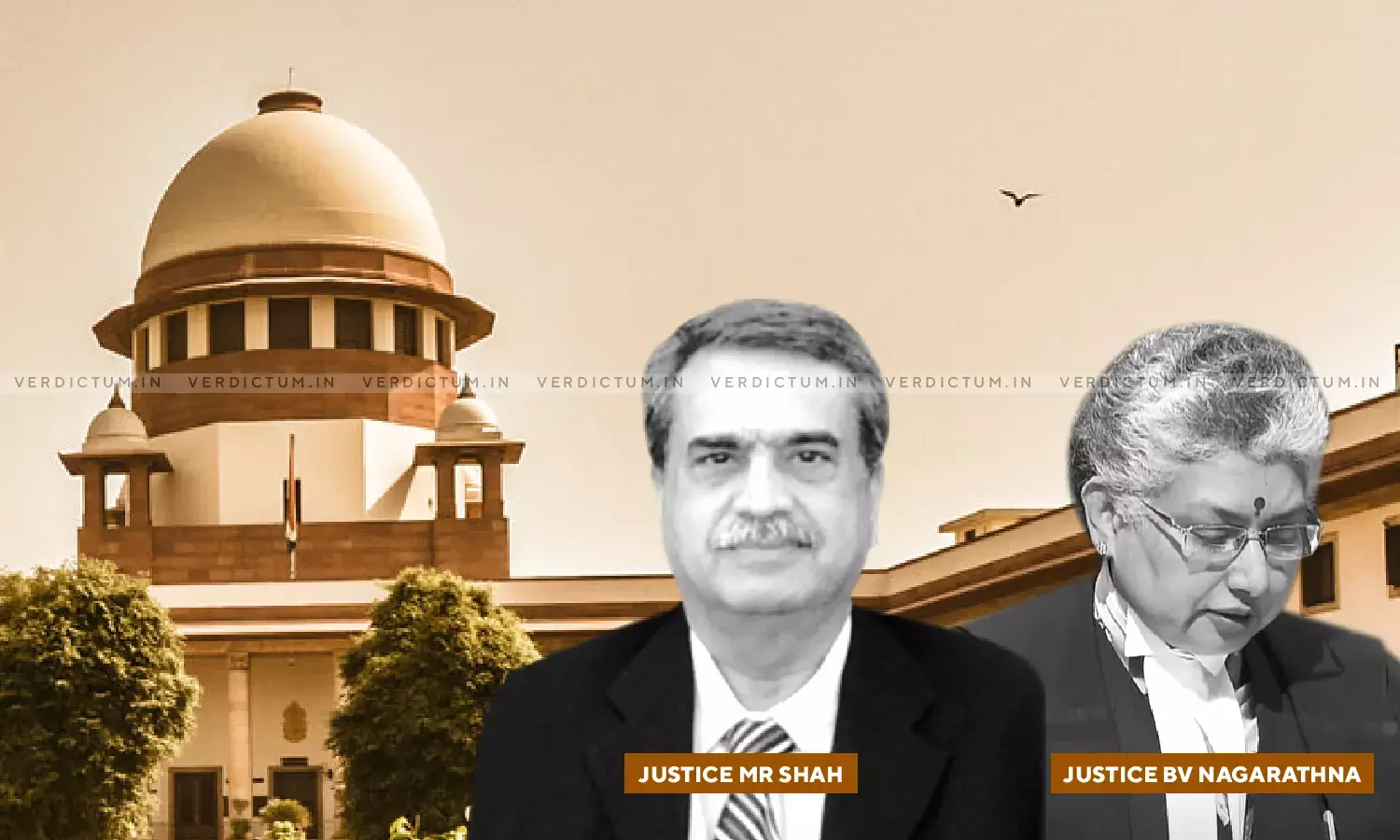Jurisdiction Of Court Would Not Cease Merely Because Order Of Which Contempt Is Alleged Is Executable Under Law - SC
A two-judge Bench of Justice MR Shah and Justice BV Nagarathna has held that "it is trite law that the jurisdiction of a Court under the Act, would not cease, merely because the order or decree of which contempt is alleged, is executable under law, even without having recourse to contempt proceedings."
Mr. Shyam Divan appeared on behalf of the alleged contemnors while Mr. Jayant Bhushan appeared on behalf of the petitioner.
The Court was dealing with a contempt petition filed by Urban Infrastructure Real Estate Fund, in whose favor, an award was passed by the Arbitrator to punish the respondents under Contempt of Courts Act, 1971 for willful disobedience of order passed by the SC in an SLP and subsequent orders in the same SLP.
The arbitrator awarded specific performance of a share purchase agreement and held that the petitioner is entitled to recover an amount of Rs. 78,33,37,500/- with interest at the rate of 18% p.a. with effect from 20.12.2014 till realization.
An appeal was preferred challenging the award of the arbitrator under Section 34 of the Arbitration and Conciliation Act, 1996. The award was stayed on the condition of a deposit of 50% of the awarded amount. The High Court noted that if such deposit is not made within the prescribed time, the interim stay will be vacated without further reference to Court. the petitioner was also directed to deposit 50% of its shareholding in the respondent No. 2 company within one week of deposit of amount.
The award creditor had already filed an execution petition before the filing of the Section 34 petition. The Single Judge therein had directed to file a disclosure affidavit. This order was not complied with.
In the meanwhile, a commercial appeal was instituted by the respondents. Appeal was dismissed as non-maintainable and interim application was also disposed of. Hence, an SLP was preferred. The said SLP was dismissed on merits. The Court granted further 8 weeks to comply with the order. As the order was passed ex parte, a recall was sought.
The Court passed an order directing to comply with the order of the High Court positively within the timeframe of 8 weeks granted. This was also not complied with.
The Court noted that "Having taken the benefit of the extensions for a period of approximately two years and more, thereafter, it is not open for the respondents to contend that since they have not deposited the amount as per the order dated 08.08.2019, necessary consequences under Section 36 of the Act of 1996 shall follow and the execution proceedings have to be proceeded further. As observed hereinabove, the execution proceedings have been delayed in view of the interim order dated 08.08.2019 and the subsequent extensions granted by the High Court, which were at the behest of the respondents."
The Court noted that it was mindful of the fact that contempt proceedings should not be of the nature of execution proceedings in disguise. However, the Court noted in the instant case, the High Court had stayed the award subject to deposit of an amount and that time period was extended on two occasions. The court noted that having taken the advantage of the extended time period, the respondent cannot at this juncture take the plea that non-compliance would only render the award enforceable and have no consequences under the Contempt of Courts Act.
The Court made the following crucial observations:
"Contempt jurisdiction could be invoked in every case where the conduct of a contemnor is such as would interfere with the due course of justice; vide Rama Narang vs. Ramesh Narang – [(2006) 11 SCC 114. Contempt is a matter which is between the Court passing the order of which contempt is alleged and the contemnor; questions as to executability of such order is a question which concerns the parties inter-se. The power of the Court to invoke contempt jurisdiction, is not, in any way, altered by the rights of the parties inter-se vide Bank of Baroda vs. Sadruddin Hasan Daya – [(2004) 1 SCC 360]."
The Court noted that the conduct of the respondent-contemnors would justify invocation of contempt jurisdiction of the Court. The Court noted that not only the contemnors had unreasonably delayed and defaulted in compliance with the orders but had also sought to avoid compliance even after taking benefit of the extended-time period granted.
The Court noted that "the contemnors cannot, at this juncture, claim that the requirement of deposit was not mandatory, but directory and therefore non-compliance thereof would not constitute contempt."
Hence, the Court held the respondents guilty of contempt of Court. The Court noted that the respondents would now be heard on sentencing.
Click here to read/download the Judgment




